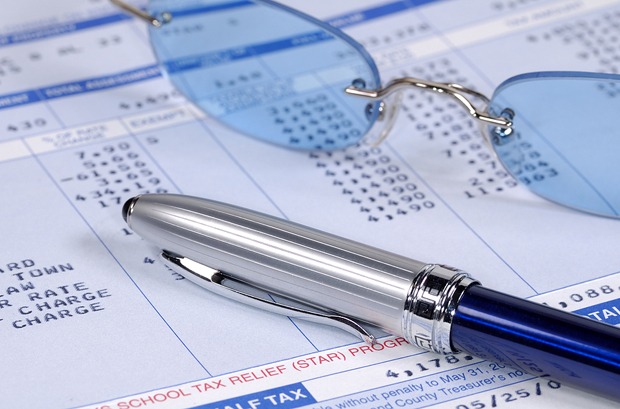
Each county has a property tax collector’s office that collects property taxes (often referred to as “secured” property taxes) from property owners. The tax collector relies on the county assessor’s office to get the assessed value of each piece of property. The tax collector then applies to that value the property tax rate (which is a percentage of the value of the property) to compute the final tax bill. This is called an “ad valorem” tax, which means “according to value.” Other special taxes also are often collected on different pieces of property. These include:
- A parcel tax a city may enact to collect money for city services
- A special assessment district within a city in which property owners pay a special tax for improvements such as street lights or sewer service
- Special school district taxes
- Taxes on land in areas susceptible to floods
These taxes sometimes are assessed based on the value of the property. In other cases there is just a flat tax on each parcel of land.
Indexes
A county tax collector’s office usually has two indexes to keep track of property tax payments:
- A street address index that lists the amount of property taxes paid on each property, as well as the names of the property owners that are paying the taxes on each property.
- An alphabetical index of the names of people, companies and organizations that own property in a county and the amount of property taxes they are paying on each property.
These indexes are usually kept on a computer terminal accessible at the tax collector’s office.
Ownership Caution
A tax collector office’s records on who owns property may not be current because a property owner may have sold the property since the last tax bill was paid. Taxes are usually paid in two installments, one due in late Fall (such as November or December), the other due in winter (such as February or March). For up-to-date ownership records you need to check the county recorder’s office. That is where property transactions are recorded daily. The recorder’s office has an alphabetical index of property related transactions, such as the names of people and companies buying and selling properties. Thus you can take the name of a property taxpayer listed at the tax collector ‘s office and check that name at the recorder’s office to see if a property deed has been filed showing the property was recently sold to someone else.
Property Tax Collector Records Online
Some county property tax collector offices have put a portion of the property tax records online. These records usually do not include information on the names of the property owners who are paying the taxes, because of privacy concerns. Instead they just list property addresses and the taxes being paid on each property. One website that tracks tax collector’s offices that have put their indexes online is: NETR Online A private real estate research and information company, NETR has a map of the United States on its home page you can click on to bring up a list of all the county agencies in a particular state that handle property sales and ownership. These include property tax collector offices. Agencies that have an index of their records available online are noted with a Go to Data Online link.
San Francisco Bay Area Tax Collector Records Online
Many county tax collectors in the San Francisco Bay Area have put their indexes to property tax records on their websites. But they are searchable only by address and do not include the names of the taxpayers. They include:
- Alameda County Treasurer-Tax Collector
- San Francisco Office of the Treasurer and Tax Collector
- Contra Costa County Treasurer-Tax Collector
- Santa Clara County Tax Collector’s Office
About this Tutorial
This tutorial was originally written by Paul Grabowicz for students in his Computer Assisted Reporting class, and later modified for public use.
Republishing Policy
This content may not be republished in print or digital form without express written permission from Berkeley Advanced Media Institute. Please see our Content Redistribution Policy.
© 2020 The Regents of the University of California
